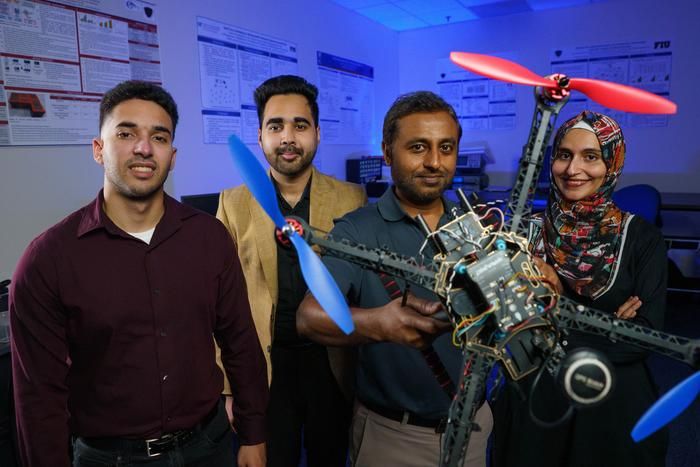Researchers from Florida International University in the USA have developed and tested a system that can detect and neutralize cyberattacks on drones in real-time, and crucially, allow the drone to complete its mission.
Safeguarding the security of drones is becoming more important. Earlier this year, the FAA proposed expanding commercial drone use across industries. The FAA expects more businesses to deploy unmanned aircraft, raising urgent questions about safety in the face of increasingly sophisticated cyber threats.
SHIELD (Side-channel analysis-based multimodal Holistic Intrusion Evaluation with Layered Defense) is a security framework that leverages data from across a drone’s systems to detect, categorize an attack and tailor a recovery process.
“Without robust recovery mechanisms, a drone cannot complete its mission under attacks, because even if it is possible to detect the attacks, the mission often gets terminated as a fail-safe move,” said Mohammad Ashiqur Rahman, lead researcher and associate professor in Florida International University’s (FIU) Knight Foundation School of Computing and Information Sciences. “What’s important about our framework is that it helps the system recover, so the mission can be completed.”
Traditionally, attack detection has involved sensors that help the drone perceive its surroundings and fly safely, but according to the researchers this can be easily manipulated.
SHIELD monitors the drone’s entire control system and detects abnormalities not just in sensors but also in hardware, where hackers often try to hide their tracks. A sudden battery surge or overheating processor, for instance, may signal an attack underway.
The system then uses machine learning to diagnose the type of assault. Each attack leaves behind a unique signature, and SHIELD responds with a tailored recovery protocol. In lab simulations, the FIU team’s approach identified attacks in an average of 0.21 seconds and restored normal flight in 0.36 seconds.
The researchers will next scale up testing, preparing SHIELD for real-world deployment. With drones poised to reshape commerce, infrastructure monitoring, and disaster response, FIU researchers say securing them is no longer optional.
“Reliable and secure drones are the key to unlocking future advancements,” Rahman said. “It’s our hope this work can play a role in moving the industry forward.”





